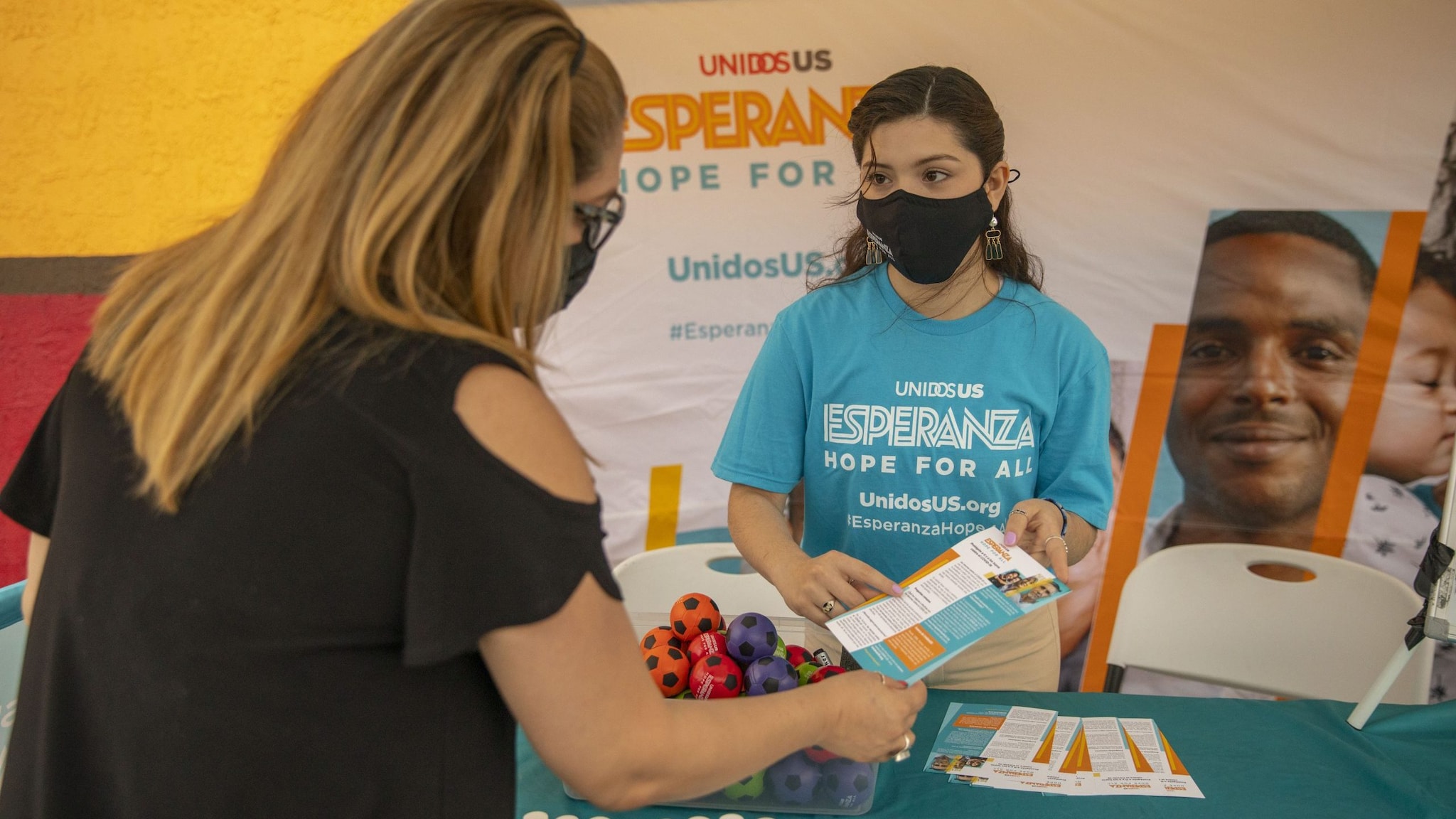At a glance
Through CDC's Partnering for Vaccine Equity (P4VE) program, UnidosUS is working with their partners across the United States through their Esperanza Hope for All initiative.

Description
UnidosUS' Esperanza Hope for All campaign helps inform communities, fight misinformation, and build trust and increase COVID-19 vaccine access in Hispanic and Latino communities throughout the United States. UnidosUS and its partners achieve this through directly engaging with Hispanic and Latino communities on social and digital media channels, radio, TV, ad buys, and in-person events. The Esperanza Hope for All initiative works to:
- Increase vaccine equity and uptake for adults in Hispanic and Latino communities
- Continue to build trust in the safety and efficacy of COVID-19 and influenza vaccines
- Identify and address vaccine misinformation in the media
- Ensure that Hispanic and Latino adults and families have access to culturally-tailored vaccine information to help them make the best decisions on how to protect themselves, their families, and their communities
- Deploy educational campaigns and trusted messengers
- Provide data on program efforts and barriers to vaccine uptake
Early Impact
Partnering with federally qualified health centers and community based organizations, UnidosUS has been able to train and deploy 6,200 trusted messengers and utilized public and private partnerships to host COVID-19 and/or flu vaccination events, establish over 840 new partnerships with vaccine administrators and was able to vaccinate approximately 644,000 community members against COVID-19 and/or influenza, and build relationships with national, state, and local English/Spanish media outlets to increase vaccination uptake and address vaccine misinformation. UnidosUS’ work with social media partners has helped to deepen community ties, provide trusted sources of health information, and change perceptions of COVID-19 and flu vaccines through peer-to-peer interaction.
Lessons Learned
- It is essential to promote traditional and non-traditional partnerships, as well as encourage internal organization collaborations.
- Long-standing relationships built by organizations' staff help reinforce credibility among community partnerships for continued engagement.
- Groups that have been marginalized are essential in informing the development of culturally and linguistically tailored approaches to increase access to COVID-19 and flu vaccines.
- Organizations will adapt their strategies based on the community, platform, current events, and realities of the pandemic.
